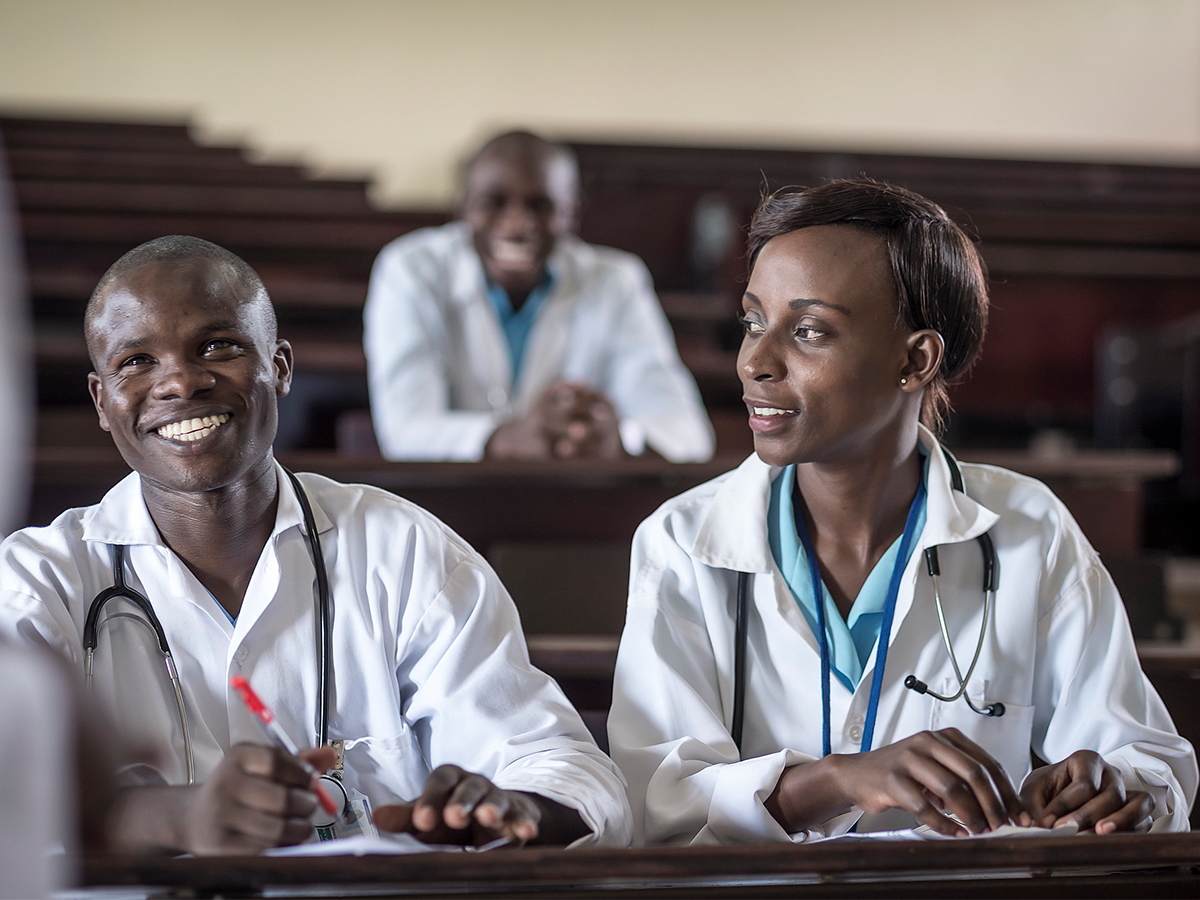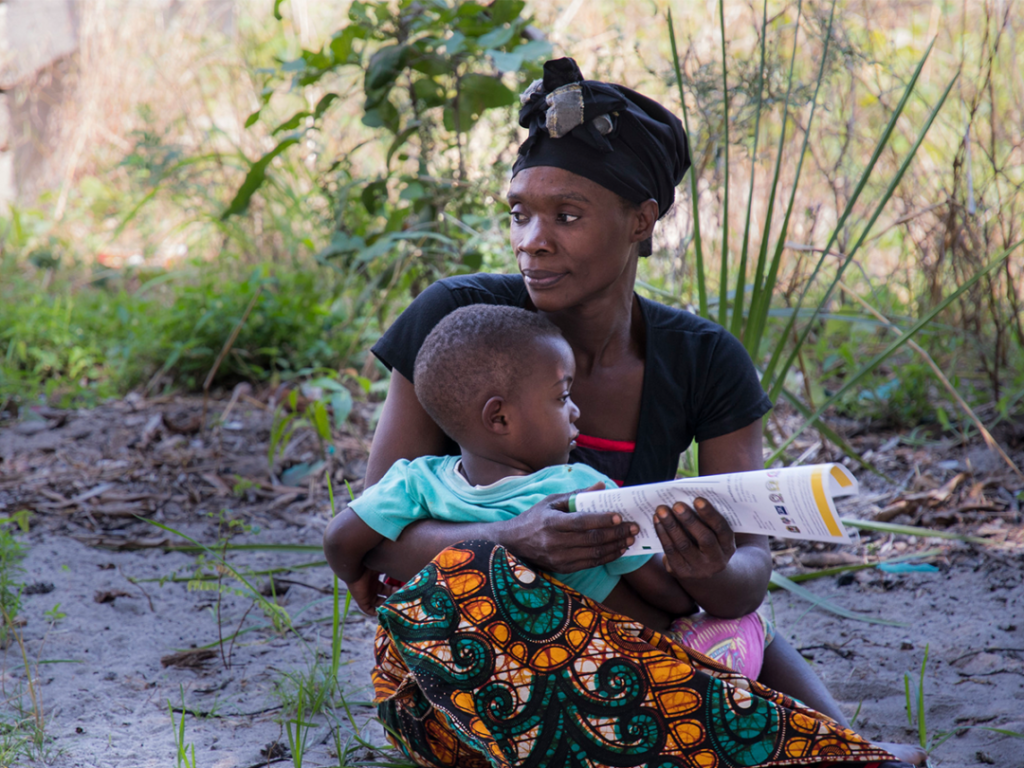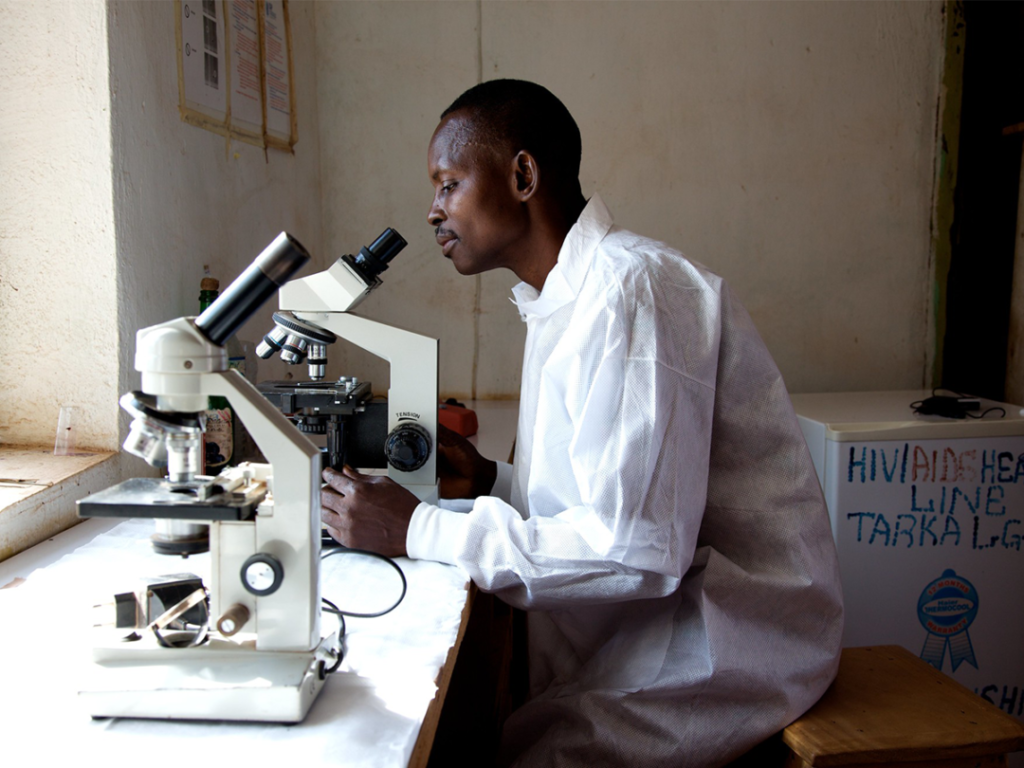For nearly two decades, ICAP at Columbia University has been working in concert with countries throughout sub-Saharan Africa to address wide ranging threats to public health. With a new series of awards from the U.S. President’s Emergency Plan for AIDS Relief (PEPFAR) through the U.S. Centers for Disease Control and Prevention (CDC), ICAP is expanding its work in Zambia, Lesotho, and Eswatini, working closely with these countries’ ministries of health and other partners to provide innovative, national HIV services at scale, to design and implement more effective health surveillance, and to support the improvement of laboratory systems.
“ICAP’s continued partnership with PEPFAR, CDC, and the countries of sub-Saharan Africa has resulted in tremendous improvement of health systems across the region, particularly in strides made towards HIV epidemic control,” said Wafaa El-Sadr, MD, MPH, MPA, ICAP’s founder and global director. “Today, as we face a global pandemic, this partnership and work we are undertaking together is even more important. Moving forward, ICAP looks to focus its capabilities and experience at a new level to address combined health threats these countries are facing and improve the lives of millions throughout the region.”
Providing Technical Assistance to Improve HIV and TB Health Systems in Zambia

In Zambia, ICAP will optimize HIV and TB programs at the facility, district, and provincial levels. With over 15 years of experience in the country, ICAP will continue to work alongside national agencies to focus on building of health care worker capacity, strengthening leadership and coordination within and among health facilities, and enhancing the functionality of core HIV and TB health systems.
“ICAP’s continued support to improving HIV and TB health systems in Zambia will further strengthen local capacity to respond quickly and effectively to prevent new infections and provide adequate care and treatment to those affected by these illnesses and ultimately contribute to reaching epidemic control in the country,” said Prisca Kasonde, MD, MMed, MPH, country director for ICAP in Zambia.
Improving Access to Quality Laboratory Services in Lesotho
Through the Expanding Access to Quality Laboratory Service (EQUALS) project, funded by PEPFAR through CDC, ICAP will expand its health systems portfolio in Lesotho to help increase access to and improve the quality of lab diagnostic and monitoring services.
Under the EQUALS project, ICAP is partnering with Lesotho’s National Reference Laboratory, Ministry of Health, and National Health Training Colleges to provide comprehensive laboratory support. As robust laboratory services play a critical role in implementing Lesotho’s national HIV strategy, ICAP will utilize its global experience to help bring a new level of quality to the laboratory systems of Lesotho, with the goal of improving efficiency, diagnostic results, accuracy, and local capacity to support a more robust HIV response in the country.
“Lesotho’s national strategy to address HIV depends upon high-quality laboratory systems and services,” said Felix Ndagije, MD, Msc, country director for ICAP in Lesotho. “Having supported a multitude of health systems strengthening projects in Lesotho since 2005 – including for health information systems, monitoring and evaluation, and human resources for health – ICAP is well equipped to support the Ministry of Health in expanding and improving laboratory services across the nation.”
Strengthening Health Systems by Expanding Surveillance and Laboratory Activities in Eswatini

Since 2005, ICAP has been a key technical and implementation partner with the Kingdom of Eswatini, playing an important role in supporting the Ministry of Health to achieve the remarkable progress it has made in tackling the nation’s devastating HIV epidemic. With two new PEPFAR awards through CDC, ICAP will build on this productive partnership to further strengthen health systems in Eswatini by expanding both surveillance and laboratory activities.
Through the first award, ICAP will deepen work with the Ministry of Health and several other government organizations to support health systems strengthening activities. Notably, ICAP will support expanded surveillance initiatives such as an upcoming national violence against children survey (VACS). This builds upon a previous VACS conducted in the country as well as one recently completed in nearby Lesotho. These activities will generate critical data to inform national programs, enabling public organizations to address major disease and violence burden areas in the country.
ICAP will also extend its partnership with the Eswatini Health Laboratory Service to continue increasing the quality of laboratory services for HIV, TB, and cervical cancer by supporting the continued decentralization of laboratory services, the optimization of laboratory networks, and the improvement of the Laboratory Quality Management System. ICAP will continue to strengthen within the national laboratory network to implement up-to-date policies, standard operating procedures, and trainings to increase use of data for continuous quality improvement.
“ICAP’s long history of work in Eswatini has made a significant impact on the lives of many who have been affected by the HIV epidemic,” said Ruben Sahabo, MD, ICAP in Eswatini’s country director. “With CDC’s continued support, ICAP will be able to improve surveillance and laboratory quality to address not only the ongoing HIV epidemic, but also a range of other health conditions, including COVID-19.”
With a long history of working on infectious disease control, ICAP is leveraging its longstanding partnership with PEPFAR and CDC as a driving force to improve population health outcome — from continued work in HIV and TB to chronic illnesses such as cervical cancer to social determinants of health such as violence against children. With these major new projects supported by PEPFAR/CDC, ICAP will continue to harness its resources and expertise to provide solutions to overcome the profound public health challenges these countries face.
A global health leader since 2003, ICAP was founded at Columbia University with one overarching goal: to improve the health of families and communities. Together with its partners—ministries of health, large multilaterals, health care providers, and patients—ICAP strives for a world where health is available to all. To date, ICAP has addressed major public health challenges and the needs of local health systems through 6,000 sites across more than 30 countries. For more information about ICAP, visit: icap.columbia.edu.








